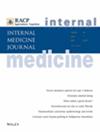Outcomes following lung transplantation for interstitial lung diseases in New Zealand: a retrospective review
Abstract
Background
Interstitial lung diseases (ILDs) are a heterogeneous group of diseases that have limited treatment options and can lead to progressive respiratory failures. Lung transplantation offers a therapeutic option for selected patients. There are no New Zealand data published regarding outcomes of those who received lung transplantation for ILDs.
Aims
We assessed survival outcomes after lung transplantation for ILDs in New Zealand, comparing bilateral versus single-lung transplants and size-matched versus mismatched lungs.
Methods
A retrospective, single-centre study included ILD patients who underwent lung transplantation from December 2006 to March 2023. Baseline characteristics, survival and post-transplant complications were analysed. Size matching was based on predicted total lung capacity ratios.
Results
Fourty-four patients underwent lung transplantation for ILDs during this period, with a median recipient age of 54 years old. Median survival was 6.2 years; 30-day and 1-, 3-, 5- and 7-year survival rates were 84%, 80%, 66%, 58% and 49% respectively. Survival did not differ between bilateral and single lung transplants (P = 0.42) or between size matched and mismatched transplants (P = 0.58). Single lung transplants had shorter intensive care unit (ICU) stays and less intra-operative cardiopulmonary bypass use.
Conclusion
Lung transplantation for ILDs in New Zealand achieves survival outcomes comparable to international centres. No significant survival differences were found between bilateral and single-lung transplants or between sizes matched and mismatched lungs. Single-lung transplantation may offer advantages such as shorter ICU stays and reduced cardiopulmonary bypass use. Careful patient selection, especially in older patients, may improve outcomes.

 求助内容:
求助内容: 应助结果提醒方式:
应助结果提醒方式:


